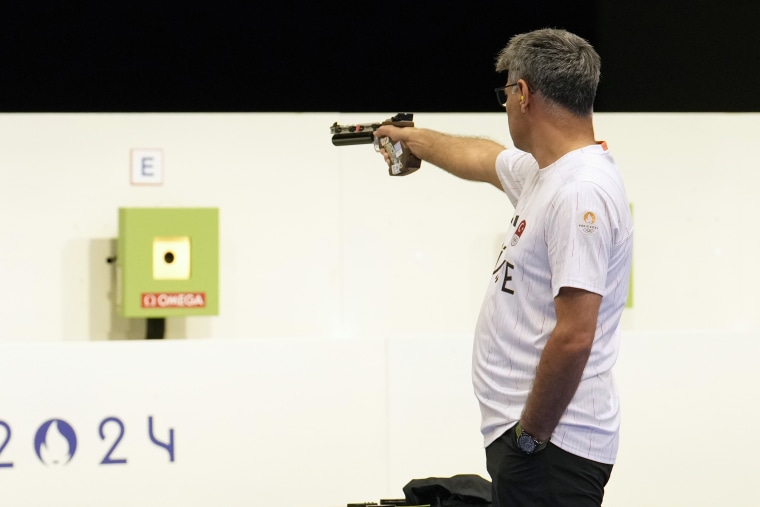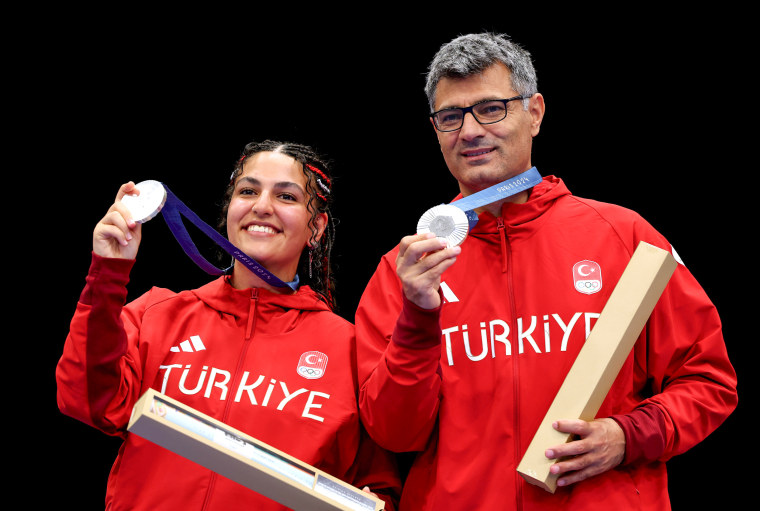Turkish cleric Fethullah Gülen at his compound in Saylorsburg, Pa., in July 2016.
Chris Post/AP
hide caption
toggle caption
Chris Post/AP
SAYLORSBURG, Pa. — Fethullah Gülen, a reclusive U.S.-based Islamic cleric who inspired a global social movement while facing accusations he masterminded a failed 2016 coup in his native Turkey, has died.
Abdullah Bozkurt, the former editor of the Gülen-linked Today’s Zaman newspaper, who is now in exile in Sweden, said Monday that he spoke to Gülen’s nephew, Kemal Gülen, who confirmed the death. Fethullah Gülen was in his eighties and had long been in ill health.
Turkish Foreign Minister Hakan Fidan said the death has been confirmed by Turkish intelligence sources.

“The leader of this dark organization has died,” he said.
Gülen spent the last decades of his life in self-exile, living on a gated compound in Pennsylvania’s Pocono Mountains, from where he continued to wield influence among his millions of followers in Turkey and throughout the world. He espoused a philosophy that blended Sufism — a mystical form of Islam — with staunch advocacy of democracy, education, science and interfaith dialogue.
Gülen began as an ally of Turkish leader Recep Tayyip Erdogan, but became a foe. He called Erdogan an authoritarian bent on accumulating power and crushing dissent. Erdogan cast Gülen as a terrorist, accusing him of orchestrating the attempted military coup on the night of July 15, 2016, when factions within the military used tanks, warplanes and helicopters to try to overthrow Erdogan’s government.

Heeding a call from the president, thousands took to the streets to oppose the takeover attempt. The coup-plotters fired at crowds and bombed parliament and other government buildings. A total of 251 people were killed and around 2,200 others were wounded. Around 35 alleged coup plotters were also killed.

Gülen adamantly denied involvement, and his supporters dismissed the charges as ridiculous and politically motivated. Turkey put Gülen on its most-wanted list and demanded his extradition, but the United States showed little inclination to send him back, saying it needed more evidence. Gülen was never charged with a crime in the U.S., and he consistently denounced terrorism as well as the coup plotters.

In Turkey, Gülen’s movement — sometimes known as Hizmet, Turkish for “service” — was subjected to a broad crackdown. The government arrested tens of thousands of people for their alleged link to the coup plot, sacked more than 130,000 suspected supporters from civil service jobs and more than 23,000 from the military, and shuttered hundreds of businesses, schools and media organizations tied to Gülen.
Gülen called the crackdown a witch hunt and denounced Turkey’s leaders as “tyrants.”

“The last year has taken a toll on me as hundreds of thousands of innocent Turkish citizens are being punished simply because the government decides they are somehow ‘connected’ to me or the Hizmet movement and treats that alleged connection as a crime,” he said on the one-year anniversary of the failed coup.
Turkish Foreign Minister Fidan said Monday that Gülen’s death “will not make us complacent or relaxed. This organization has been a threat rarely seen in the history of our nation.”
“Our nation, our state will continue to fight against this organization as they do with all kinds of terrorist organizations,” Fidan said.
He also called on Gülen’s followers to turn away from “this treasonous wrong path.”
Gülen preached that religion and science could go hand in hand
Fethullah Gülen was born in Erzurum, in eastern Turkey. His official birth date was April 27, 1941, but that has long been in dispute. Y. Alp Aslandogan, who leads a New York-based group that promotes Gülen’s ideas and work, said Gülen was actually born sometime in 1938.
Trained as an imam, or prayer leader, Gülen gained notice in Turkey some 50 years ago. He preached tolerance and dialogue between faiths, and he believed religion and science could go hand in hand. His belief in merging Islam with Western values and Turkish nationalism struck a chord with Turks, earning him millions of followers.

Gülen’s acolytes built a loosely affiliated global network of charitable foundations, professional associations, businesses and schools in more than 100 countries, including 150 taxpayer-funded charter schools throughout the United States. In Turkey, supporters ran universities, hospitals, charities, a bank and a large media empire with newspapers and radio and TV stations.
But Gülen was viewed with suspicion by some in his homeland, a deeply polarized country split between those loyal to its fiercely secular traditions and supporters of the Islamic-based party associated with Erdogan that came to power in 2002.
Gülen had long refrained from openly supporting any political party, but his movement forged a de facto alliance with Erdogan against the country’s old guard of staunch, military-backed secularists, and Gülen’s media empire threw its weight behind Erdogan’s Islamic-oriented government.
Gülenists helped the governing party win multiple elections. But the Erdogan-Gulen alliance began to crumble after the movement criticized government policy and exposed alleged corruption among Erdogan’s inner circle. Erdogan, who denied the allegations, grew weary of the growing influence of Gülen’s movement.
Erdogan charged Gülen with plotting to overthrow him
The Turkish leader accused Gülen’s followers of infiltrating the country’s police and judiciary and setting up a parallel state, and began agitating for Gülen’s extradition to Turkey even before the failed 2016 coup.
The cleric had lived in the United States since 1999, when he came to seek medical treatment.
In 2000, with Gülen still in the U.S, Turkish authorities charged him with leading an Islamist plot to overthrow the country’s secular form of government and establish a religious state.

Some of the accusations against him were based on a tape recording on which Gülen was alleged to have told supporters of an Islamic state to bide their time: “If they come out too early, the world will quash their heads.” Gülen said his comments were taken out of context.
The cleric was tried in absentia and acquitted, but he never returned to his homeland. He won a lengthy legal battle against the administration of then-President George W. Bush to obtain permanent residency in the U.S.
Rarely seen in public, Gülen lived quietly on the grounds of an Islamic retreat center in the Poconos. He occupied a small apartment on the sprawling compound and left mostly only to see doctors for ailments that included heart disease and diabetes, spending much of his time in prayer and meditation and receiving visitors from around the world.
Gülen never married and did not have children. It is not known who, if anyone, will lead the movement.
Source link



